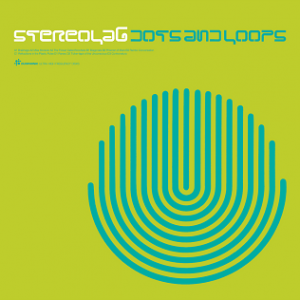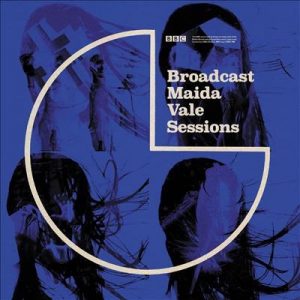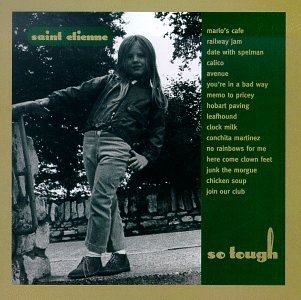Eclectic, electronic British indie-pop
There's something people find very appealing about London in the 1960s. Ever a tastemaker on the world stage, the city had a huge influence on pop culture at that time. Look no further than the British Invasion of music in America. The sound, the fashions, the colors and the chic metropolitan coolness are still referenced today. Austin Powers spoofed this free love scene in the comedy trilogy. The setting also takes front seat in the 2022 thriller Last Night in Soho.
By the '90s, that period became nostalgic and inextricable from a lot of music made in the UK. The swinging '60s styles, jangle pop and screaming psychedelia of the past were subtly baked into what became known as Britpop. Each of the three groups I've been listening to, led by female vocalists, took that mixture of old and new and put their own distinct spin on it.
Stereolab (CD | Digital)
 This group had its humble beginning when French singer Laetitia Sadier started dating guitarist Tim Gane in the late ‘80s. After his band broke up, she moved to the UK and they started their own. They quickly became known for their bilingual singing, retro-futuristic Euro style and vintage analogue synthesizers. Stereolab solidified their sound when they added a live drummer and second female vocalist, Mary Hansen of Australia, in 1993. Sadly, Hansen died in a bicycle accident in 2002, but the point-counterpoint of their vocals remained part of their compositions for their last three albums.
This group had its humble beginning when French singer Laetitia Sadier started dating guitarist Tim Gane in the late ‘80s. After his band broke up, she moved to the UK and they started their own. They quickly became known for their bilingual singing, retro-futuristic Euro style and vintage analogue synthesizers. Stereolab solidified their sound when they added a live drummer and second female vocalist, Mary Hansen of Australia, in 1993. Sadly, Hansen died in a bicycle accident in 2002, but the point-counterpoint of their vocals remained part of their compositions for their last three albums.
The library recently acquired the fifth in the band’s Switched On compilations throughout their 30 year career. (The first was released in 1992!) Hoopla also has their 1997 album Dots and Loops, which is in my top 10 albums of all time. Matching the citrus-colored, mod-style artwork of their covers, Stereolab’s music is a sleek and upbeat mix of ‘70s krautrock and ‘90s indie band cool. They use the older organs and keyboards to lend that swinging ‘60s feel. They also aren’t afraid to let their modern sci-fi electronic sequencers transport us forward. On the 17 minute “Refractions in the Plastic Pulse,” they go through four distinct melodies before layering back in a string section to finish. Elsewhere, they add texture with horn sections, marimbas and vibraphones.
Broadcast (CD)
 Another group with female vocals created by a couple, Trish Keenan and James Cargill formed Broadcast in the late ‘90s. The Birmingham natives released a series of EPs that showed the band and their sound fully-formed from the start. Similar to Stereolab, Broadcast shared a love of fusing classic synth electronics with a modern indie band core. Keenan never hides her clear British accent, singing about similarly evocative subjects then shifting to stretches of haunting nonverbal melodies. Sadly, they also share a kinship with Stereolab in that Keenan died in 2011 at 42 from complications of pneumonia. Broadcast’s fate was brought to an end in kind.
Another group with female vocals created by a couple, Trish Keenan and James Cargill formed Broadcast in the late ‘90s. The Birmingham natives released a series of EPs that showed the band and their sound fully-formed from the start. Similar to Stereolab, Broadcast shared a love of fusing classic synth electronics with a modern indie band core. Keenan never hides her clear British accent, singing about similarly evocative subjects then shifting to stretches of haunting nonverbal melodies. Sadly, they also share a kinship with Stereolab in that Keenan died in 2011 at 42 from complications of pneumonia. Broadcast’s fate was brought to an end in kind.
However, last year the band released three collections of various live, demo and unreleased recordings. The library has the best of those in the
Saint Etienne (Digital)
 Named after a soccer club from the French city, Saint Etienne was actually formed by two British music journalists wanting to make their own tunes. Originally they intended to cycle through singers. However, once singer Sarah Cracknell joined, her poppy, sweet vocals took center stage. The trio released Foxbase Alpha in 1991. They landed a hit with a jazzy cover of Neil Young's "Only Love Can Break Your Heart" set to a hip-hop beat.
Named after a soccer club from the French city, Saint Etienne was actually formed by two British music journalists wanting to make their own tunes. Originally they intended to cycle through singers. However, once singer Sarah Cracknell joined, her poppy, sweet vocals took center stage. The trio released Foxbase Alpha in 1991. They landed a hit with a jazzy cover of Neil Young's "Only Love Can Break Your Heart" set to a hip-hop beat.Saint Etienne's second and third albums earned them near-universal acclaim. They define their style as '60s girl-group pop with techno rave influences of the time. On their second album, So Tough, that fusion of influences feels especially handmade, like a patchwork of pop culture.
Saint Etienne never shies away from sampling either. They use guitar from Rush's "Spirit of the Radio" here, a noisy Japanese toy there, and clips from old British films throughout. Just about every other song is a 30 second segueway, keeping things varied and fun. You'll feel the ubiquity of electro and dance music in the UK here too. "Leafhound" keeps things airy and euphoric as Cracknell croons, "Something about this place makes me lose a grip on time and space." You can also hear the Roland TR-909 drum machine claps through "Avenue." (You'll recognize them from the phone-on-hold song.) It's all elevated by the angelic singing sounding like something from Twin Peaks. And its 60s beehive pop is in full swing on the single "You're in a Bad Way."
Top of the Pops
I've always considered Stereolab and Broadcast to be two peas in a pod. In fact, your rarely see one mentioned without the other as a "similar artist." But Saint Etienne has long been a staple of UK indie pop and fit nicely into their fusion of retro and forward-facing styles. They're the only of the three releasing music today due only to the tragedy of their losses. It's also interesting listening in 2023 to what was considered nostalgic music. Because we're now as far from these bands' starts in the early '90s as they were from the swinging '60s!














